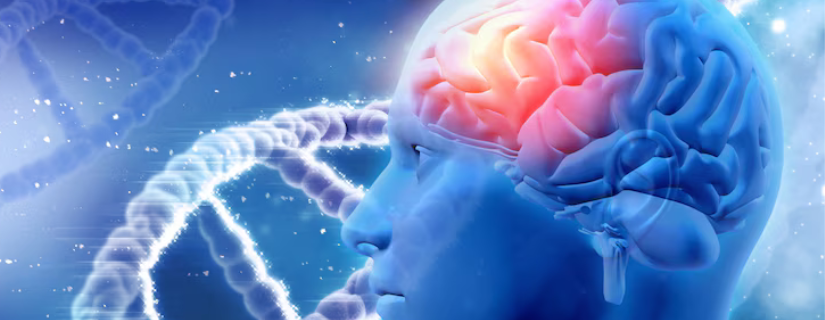Book on Whatsapp
9892101616
Blood Test May Signal Early Stages of Alzheimer’s Disease
Mental Health
Mon Sep 30 2024
Researchers from various institutions have made important progress in the fight against Alzheimer’s disease by discovering microRNAs in blood that may serve as early signs of the disease's development. This breakthrough could lead to simpler and less invasive ways to diagnose Alzheimer’s, the most common form of dementia affecting millions around the globe.
What Are MicroRNAs?
MicroRNAs (miRNAs) are tiny molecules found in our blood that help regulate how genes work. They influence many biological functions, including those related to how our brain operates. Recent studies indicate that certain miRNAs can act as markers for Alzheimer’s disease, assisting in predicting its progression from mild cognitive impairment (MCI) to full dementia.
The Importance of Early Diagnosis
Today, diagnosing Alzheimer’s often relies on complex tests and imaging techniques that can be expensive and invasive. Early detection is vital because it enables timely treatment, which may slow down the disease's progression. Not detecting Alzheimer’s early has been a significant hurdle in developing effective treatments.
Key Research Findings
In a joint effort involving several research teams, new findings were published showing that checking miRNAs in blood samples can effectively identify MCI and predict its transition to dementia. The researchers analyzed blood samples from participants in a long-term Alzheimer’s study, discovering that specific miRNA patterns align with known Alzheimer’s markers, like amyloid and tau proteins.
A senior researcher highlighted the significance of their findings, noting that unlike current markers requiring invasive methods, microRNAs could serve as non-invasive indicators of Alzheimer’s long before any symptoms appear. This opens up an essential window for early prevention or intervention strategies.
How the Test Works
The pathology test involves collecting blood samples and measuring the levels of certain miRNAs. Researchers found that specific miRNAs could reveal whether someone with MCI is at high risk of developing dementia within two years. This approach is not only less invasive but also potentially cheaper compared to traditional methods.
Future Possibilities
The potential impact of this research is enormous. If testing for microRNAs becomes standard practice, it could allow for earlier diagnoses and improved management of Alzheimer’s disease. Researchers emphasize that microRNAs are stable and can reflect intricate changes in the body. Analyzing just a few of these molecules can provide valuable insights into various biological pathways related to Alzheimer’s.
The teams are now focused on making the testing process easier for everyday clinical use. They envision a future where blood tests for specific microRNA patterns could routinely assess the risk of developing Alzheimer’s.
Conclusion
This groundbreaking research represents a significant advancement in diagnosing Alzheimer’s disease. With microRNAs showing potential as reliable early indicators, there is renewed hope for improving outcomes for those at risk of this challenging disease.
Related Tests
Related Packages
Related Blogs

Mental Health
New Blood Biomarker May Revolutionize Alzheimer's Disease Diagnosis
The world is progressing and so is healthcare. Researchers have developed a novel blood test for phosphorylated tau 217 (p-tau217). It is a biomarker associated with Alzheimer's Disease (AD). This development signifies a substantial leap forward in the battle against AD by offering a potentially less expensive and less invasive method for assessing disease risk compared to conventional techniques like amyloid PET imaging. Alzheimer's being a common concern with the growing population, this new found innovation has found wide acceptance in the healthcare realm.
The p-tau217 test integrates into a comprehensive suite of services designed to facilitate early AD diagnosis. This suite encompasses testing for other blood-based biomarkers like p-tau181 and amyloid beta (AB) proteins, alongside genetic testing for Apolipoprotein E (ApoE) isoforms and traditional cerebrospinal fluid (CSF) tests. By furnishing healthcare providers with a broader spectrum of diagnostic tools, a more personalized approach to evaluating an individual's risk for AD can be established. This may involve analyzing a combination of factors, including a patient's family history, cognitive function, and biomarker levels.
The ability to identify individuals at risk for AD before the onset of symptoms presents immense potential. Early diagnosis helps patients to:
- Proactive planning: Understanding their risk allows individuals to make informed decisions regarding financial planning, long-term care options, and legal matters.
- Informed healthcare decisions: Early diagnosis at Manipal TRUtest enables patients to collaborate with their physicians to develop a personalized care plan that may include lifestyle modifications, cognitive therapies, and medication management.
- Potential participation in clinical trials: Early identification of at-risk individuals is important for the development and testing of novel treatments. By participating in clinical trials, patients can contribute to scientific progress and potentially gain access to promising new treatments.
This is particularly vital as research suggests that intervening in the early stages of AD may be more effective in managing the disease. Early intervention may hold the potential to slow cognitive decline, preserve patient independence, and enhance their quality of life.
The new blood test exemplifies the ongoing advancements in AD research. As researchers continue to elucidate the complexities of this disease, novel diagnostic tools and treatment options are emerging. This blood test, in conjunction with other promising avenues of investigation, offers hope for a future where AD can be effectively managed or even prevented. Researchers are actively exploring other potential blood-based biomarkers and investigating the underlying causes of AD to develop more targeted therapies.

Mental Health
10 Good Habits to Empower Women's Mental Health!
Empowering women's mental health is crucial for overall well-being and quality of life. Are you looking for tips to maintain your mental health? Here are 10 healthy habits for women that can help empower women's mental health:
1. Regular Exercise: Physical activity has been proven to have numerous benefits for mental health, including reducing anxiety and depression, improving mood, and boosting self-esteem. Exercise also helps in stress management and fosters better sleep patterns. Engage in creative activities to improve mental health for heathy living.
2. Healthy Eating: A nutritious diet rich in fruits, vegetables, whole grains, and lean proteins can positively impact mental health. Nutrients like omega-3 fatty acids, vitamins, and minerals play a vital role in brain health and mood regulation. Stay Mentally & Emotionally Healthy
3. Mindfulness and Meditation: Practicing mindfulness and meditation can help women manage stress, improve focus, and enhance overall mental well-being. Mindfulness techniques promote self-awareness and emotional regulation. Maintaining a positive mental health is crucial to help create a work-life balance.
4. Adequate Sleep: Quality sleep is essential for cognitive function, emotional regulation, and overall mental health. Establishing a regular sleep routine and ensuring 7-9 hours of sleep per night can improve mood and energy levels.
5. Social Connections: Maintaining strong social relationships and support networks is crucial for mental health. Connecting with friends, family, or support groups can provide emotional support, reduce feelings of loneliness, and boost self-esteem.
6. Setting Boundaries: Learning to set healthy boundaries in personal and professional relationships is essential for women's mental health. Boundaries help in maintaining self-respect, reducing stress, and preserving emotional well-being.
7. Seeking Therapy or Counselling: Therapy can provide women with valuable tools to navigate emotional challenges, process past traumas, and develop coping strategies. Professional help can offer support and guidance in managing mental health issues.
8. Practicing Self-Care: Prioritizing self-care activities like hobbies, relaxation, and leisure time is essential for mental health. Engaging in activities that bring joy and relaxation can help reduce stress and improve overall well-being.
9. Limiting Screen Time: Excessive screen time, particularly on social media, can negatively impact mental health by contributing to feelings of inadequacy, comparison, and anxiety. Setting limits on screen time and practicing digital detox can help in maintaining mental well-being.
10. Cultivating Gratitude: Practicing gratitude by acknowledging and appreciating the positive aspects of life can improve mental health by fostering optimism, resilience, and a sense of well-being. Keeping a gratitude journal or engaging in acts of kindness can promote a positive mindset.
By incorporating these 10 good habits into their daily routines, women can empower their mental health and enhance their overall well-being.
Manipal TRUtest offers a wide range of diagnostic services with assured quality, accuracy, and trust backed by 70 years of Manipal legacy. You can easily schedule a blood test such as Diabetes profile test, HbA1c, CBC, Kidney Function Test, Lipid Profile, Liver Function Test, Vitamin Test. Thyroid Profile. through our WhatsApp Chatbot, Mobile App, or Website. We also provide the convenience of a Home Sample Collection, where a highly qualified phlebotomist will visit you in the comfort of your home.
OUR PRESENCE
Blood Test Center in Hyderabad / Blood Test Center in Kolkata / Blood Test Center in Vizag / Blood Test Center in Mumbai / Blood Test Center in Ghatkopar / Blood Test Center in Kolhapur / Blood Test Center in Pune / Blood Test Center in Solapur / Blood Test Center in Rohtak / Blood Test Center in Indore / Blood Test Center in Gurugram / Blood Test Center in Ghaziabad/ Blood Test Center in Bangalore / Blood Test Center in Nashik / Blood Test Center in Nagpur/ Blood Test Centre in Chennai
Sources:
Harvard Health Publishing - "Exercise is an all-natural treatment to fight depression" (https://www.health.harvard.edu/mind-and-mood/exercise-is-an-all-natural-treatment-to-fight-depression
- Source: National Institute of Mental Health - "Mental Health, Nutrition, and the Food-Mood Connection" (https://www.nimh.nih.gov/health/publications/mental-health-nutrition)
- Source: Harvard Health Publishing - "Mindfulness meditation may ease anxiety, mental stress" (https://www.health.harvard.edu/blog/mindfulness-meditation-may-ease-anxiety-mental-stress-201401086967)
- Source: National Sleep Foundation - "How Much Sleep Do We Really Need?" (https://www.sleepfoundation.org/how-sleep-works/how-much-sleep-do-we-really-need)
American Psychological Association - "The Benefits of Social Connections and Good Mental Health" (https://www.apa.org/topics/mental-health-connections)
: Mayo Clinic - "Stress relief from laughter? It's no joke" (https://www.mayoclinic.org/healthy-lifestyle/stress-management/in-depth/stress-relief/art-20044456)
American Psychological Association - "Understanding Psychotherapy and How It Works" (https://www.apa.org/helpcenter/understanding-psychotherapy)
Harvard Health Publishing - "Understanding the stress response" (https://www.health.harvard.edu/staying-healthy/understanding-the-stress-response)
Child Mind Institute - "How Using Social Media Affects Teenagers" (https://childmind.org/article/how-using-social-media-affects-teenagers/)
: Greater Good Magazine - "Gratitude" (https://greatergood.berkeley.edu/topic/gratitude/definition#why_practice_it)

Mental Health
Decoding Early Signs and Symptoms of Alzheimer's Disease
Naira was returning home after a long sabbatical as she completed her graduation overseas and was excited to meet her dearest grandma Gayatri. Upon reaching her home, the interior was beautifully decorated and she received a warm welcome from her parents and siblings but one important person was missing from the gathering. Her grandma Gayatri. So, she went to her room to meet her with her heart bubbling with joy. She covered her old granny’s eyes with her hands and asked her to guess. To Naira’s dismay, her granny didn’t recognize her at all. What made things worse was, that she couldn’t recollect Naira’s face too. She forgot her only grandchild’s name. The moral of the story is: No pain is deeper than being erased from your loved one’s memory, forever.
By now, you must have guessed today's burning topic is Alzheimer’s. Cracking the disease early may prevent the aforementioned health crisis. Taking your brain health quite seriously is highly imperative. So, here we are decoding the early signs and symptoms of Alzheimer's disease which can vary from person to person, but here are some Alzheimer's warning signs.
Symptoms of Alzheimer's Disease
1. Memory loss: One of the most common early signs of Alzheimer's disease is memory impairment. This can include forgetting recently learned information, asking for the same information repeatedly, or relying heavily on memory aids.
2. Difficulty with problem-solving and complex tasks: Individuals with Alzheimer's disease may experience challenges in planning and performing ordinary tasks that involve numbers, following instructions, or making decisions.
3. Confusion about time and place: They may have difficulty keeping track of dates, seasons, or the passage of time. It is not uncommon for someone with Alzheimer's to become disoriented or get lost in familiar places.
4. Changes in mood or personality: People with Alzheimer's may exhibit significant changes in mood, such as becoming anxious, depressed, irritable, or easily agitated. Their personality may also undergo noticeable changes, like becoming more withdrawn or exhibiting uncharacteristic behaviours.
5. Difficulty with language and communication: Alzheimer's can impact a person's ability to find the right words or follow a conversation. They may struggle to express themselves coherently or understand what others are saying.
6. Misplacing things: Often, individuals with Alzheimer's disease misplace items and may have difficulty retracing their steps to find them. This goes beyond ordinary forgetfulness.
7. Decreased or poor judgment: Poor decision-making, impulsivity, and impaired judgment may become apparent in the early stages of Alzheimer's disease. This can lead to inappropriate financial transactions, neglecting personal hygiene, or exhibiting changes in grooming habits.
8. Withdrawal from work or social activities: Early signs of Alzheimer's may include a loss of interest in previously enjoyed hobbies, work-related activities, or social interactions. They may start to withdraw from these activities due to cognitive and behavioural changes.
Causes of Alzheimer's Disease
1. Genetic factors: Some conditions and diseases have a genetic component, meaning they can be passed down from parents to their children.
2. Environmental factors: Certain environmental factors, such as exposure to toxins or chemicals, can contribute to the development of certain diseases.
3. Lifestyle factors: Unhealthy lifestyle choices, such as poor diet, lack of exercise, smoking, excessive alcohol consumption, and stress, can increase the risk of developing various diseases.
4. Infections: Infections caused by bacteria, viruses, parasites, or fungi can lead to various diseases and conditions.
5. Age-related factors: As we age, our risk for certain diseases tends to increase. This is attributed to the normal ageing process and the cumulative effects of other risk factors.
Now let's move on to Alzheimer’s Treatment Options.
Diagnosis of Alzheimer's Disease
1. Medical history: Your healthcare provider will ask about your symptoms, medical history, and any family history of diseases to understand the context and potential risk factors.
2. Physical examination: A physical examination involves a thorough evaluation of your body, including checking vital signs, inspecting specific areas, and listening to your heart and lungs.
3. Laboratory tests: Blood tests, urine tests, and other laboratory tests are commonly used to assess various markers, such as blood glucose levels, cholesterol levels, hormone levels, and genetic markers.
4. Imaging tests: Imaging techniques like X-Rays, CT Scans, MRIs, Ultrasounds, and PET-CT Scans can help visualise the internal structures and identify abnormalities or conditions.
5. Biopsy: Sometimes, a small tissue sample may be collected for analysis. This can help confirm a diagnosis or identify specific diseases like cancer.
It's important to note that the diagnostic process can vary depending on the specific symptoms and suspected condition. Therefore, it's recommended to consult with a healthcare professional for a thorough evaluation and diagnosis.
Manipal TRUtest offers a wide range of diagnostic services with assured quality, accuracy, and trust backed by 70 years of Manipal legacy. You can easily schedule a blood test through our WhatsApp Chatbot, Mobile App, or Website. We also provide the convenience of a Home Sample Collection, where a highly qualified phlebotomist will visit you in the comfort of your own home.
Also Read: What is Bipolar Disorder? Here's Everything You Need to Know
